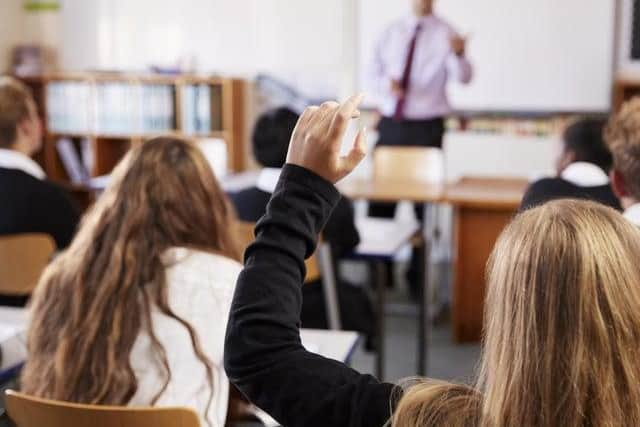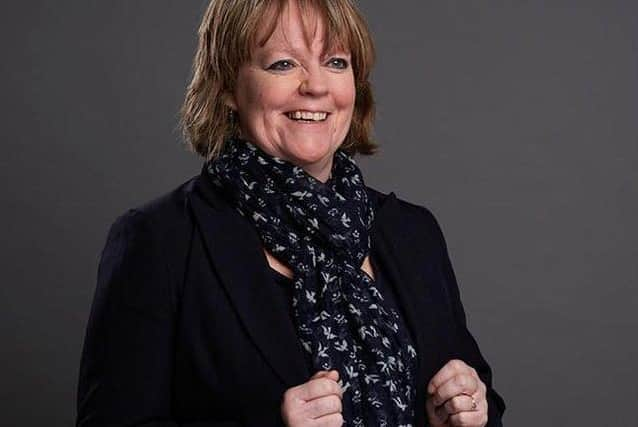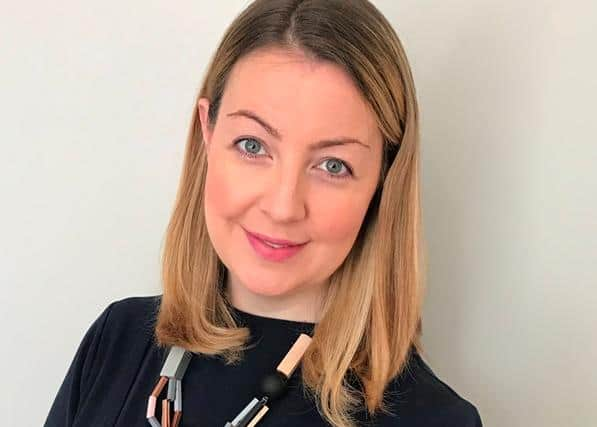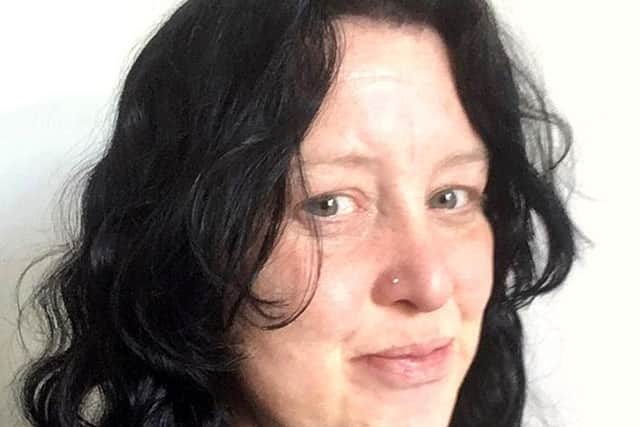'Horrifying' funding gap facing the most vulnerable young people, says Yorkshire education leaders
It comes after the Whitehall spending watchdog has revealed Government efforts to “level up” funding for education have resulted in cuts to the money going to the most deprived schools.
A new report published by the National Audit Office (NAO) today, Friday, July 2, said since the introduction of a national funding formula for England there had been a “relative redistribution” of resources to schools in better-off areas.
Advertisement
Hide AdAdvertisement
Hide Ad

In contrast, it said, almost 60 per cent of the most deprived fifth of schools had seen a real terms reduction in Government funding since 2017-18.
Charities, education and business leaders in Yorkshire alongside national school union leaders, are urging Downing Street to prioritise the most vulnerable young people in the North, who even before the pandemic hit were not on an “even-playing field” with their peers in the South.
Samantha Twiselton, deputy for the Doncaster Opportunity Area - one of three Yorkshire opportunity areas - alongside Bradford and the North Yorkshire Coast, said the NAO report came as “no surprise.”
Opportunity areas were set up in 2016 by then Education Secretary Rotherham-born Justine Greening to improve social mobility in the most disadvantaged areas.
Advertisement
Hide AdAdvertisement
Hide Ad

She added a concerted effort was needed to prioritise the most disadvantaged pupils particularly those in northern schools, to tackle an education system that has been beset with inequalities based on region.
Ms Twiselton told The Yorkshire Post: “It sounds like a horrifying gap... on the ground it certainly feels true...it feels like these are cash-starved schools, whose budgets have been getting more and more squeezed.”
She has recently been in contact with former education catch-up tsar Sir Kevan Collins, who quit last month over the funding package offered and earlier this week condemned the Government’s ‘feeble’ approach to helping schoolchildren, saying its £1.4bn support package falls “far short” of what is needed, and she warned the disadvantage gap could create a “downward spiral” for young people.
She said: "It doesn’t feel like a level playing field.


"In England compared to other countries in the world - we are just not spending the amount of money per pupil in the first place.”
Advertisement
Hide AdAdvertisement
Hide AdShe added: “What covid has done in the longer term is make that disadvantage gap even wider.
"It’s this combination of poverty which then leads to more poverty because those disadvantaged already just haven’t got the financial social capital resilience to be able to cope when something like a global pandemic comes along."
Helen Rafferty, the interim chief executive of North of England education charity Shine, said long-term action and reform is needed from the Government, particularly across areas hit hardest in the North where there are high levels of long-term disadvantaged children.


She said: “School funding must be reformed and expanded, so that those in areas of greatest need receive more support.
Advertisement
Hide AdAdvertisement
Hide Ad“This is our best opportunity to transform life chances and create a fairer society for all children and young people across the North, regardless of their background or where they live.”
While a lobbying group representing Northern businesses said the NAO report highlights the sheer scale of the North-South educational gap which has been accelerated during the pandemic.
Sarah Mulholland, head of policy at the Northern Powerhouse Partnership, added: "Today’s report is evidence that school funding has failed to reach the children that need it most, specifically those in more deprived areas where money has been taken away to benefit the better off.
“This has got to change. We know that schools in the North face a rising tide of challenges: long-term deprivation and the hugely disproportionate impact of COVID. Since the pandemic, the education disadvantage gap at age sixteen has widened from eighteen months to two years.
Advertisement
Hide AdAdvertisement
Hide Ad“Levelling up needs action targeted at the fundamental issues in disadvantaged areas in towns and cities if we are to close the North-South divide, preparing children today for more productive jobs later in life."
Peter Kyle MP, Labour’s Shadow Schools Minister, said: "Even before the pandemic, the Conservatives were stripping away funding from the schools and children who need most support.
"With the gap in learning between kids on free school meals and their peers widening it couldn’t be clearer that the Government has got the wrong priorities for school funding.
"The Conservatives are neglecting children, and their ‘feeble’ recovery plans fall far short of what is needed."
Advertisement
Hide AdAdvertisement
Hide AdPaul Whiteman, the general secretary of the school leaders’ union NAHT, said: "The government’s current funding plans are simply insufficient, and the stark reality is that many schools are likely to be forced to make continued cuts at a time when we should be investing heavily in children’s education."
While Geoff Barton, general secretary of the Association of School and College Leaders, added:“None of this sounds like a government that is ‘levelling up’ or ‘building back better’. This is now looking like empty rhetoric and we urge it to fund the education system properly.”
The Government says it is committed to levelling up school funding and creating “equal opportunities” for young people, through its national funding formula for England.
A spokesman from the Department for Education said: "The National Funding Formula (NFF) is levelling up school funding and delivering resources where they are needed most.
Advertisement
Hide AdAdvertisement
Hide Ad"It ensures that the areas with high proportions of students from disadvantaged backgrounds are receiving the highest levels of funding, providing £6.4bn in funding for pupils with additional needs in 2021-22.
“We are providing the biggest uplift to school funding in a decade – £14 billion in total over the three years to 2022-23 – investing in early years education and targeting our ambitious recovery funding, worth £3 billion to date, to support disadvantaged pupils aged two to 19 with their attainment.”
National funding formula for England
The formula, first introduced in 2018-19, brought in minimum per-pupil funding levels, but because most schools with high levels of deprivation were already receiving above the minimum threshold they did not see any increase.
However, under the formula, more than one in three of the least deprived fifth of schools (37.1 per cent) did get a rise. In all, in 2020-21 an additional £266m was allocated to 3,150 schools – none in the poorest fifth.
Advertisement
Hide AdAdvertisement
Hide AdThe National Audit Office (NAO) said that since 2017-18, average per-pupil funding for the most deprived fifth of schools has fallen in real terms by 1.2 per cent to £5,177, while for the least deprived fifth it has risen by 2.9 per cent to £4,471.
Cities with high levels of deprivation, such as Nottingham and Birmingham, as well as most London boroughs, saw cuts while local authorities with relatively low levels of deprivation in the South West, the East Midlands and the South East received increases of around one per cent.
In all, 58.3 per cent of the fifth most deprived schools suffered a real terms per pupil funding cut, including 83.6 per cent of those Inner London.
While overall funding from the Department for Education (DfE) to schools rose from £36.2bn in 2014-15 to £43.4bn 2020-21, an increase in pupil numbers meant it amounted to a real terms per pupil increase of just 0.4 per cent.
Advertisement
Hide AdAdvertisement
Hide AdAt the same time the DfE estimated that between 2015-16 and 2019-20, cost pressures on schools outstripped funding increases by £2.2bn, mainly because of rising staff costs.
The head of the NAO Gareth Davies said: "The Department for Education has met its objective of making the way it allocates school funding more transparent and consistent. However, it is less clear whether it has met its objective of allocating funding fairly.
"Although more deprived areas and schools continue to receive more per-pupil funding than those that are less deprived, the difference in funding has narrowed.
"The department must evaluate whether this funding model is matching resources to need."
__________
Support The Yorkshire Post and become a subscriber today.
Advertisement
Hide AdAdvertisement
Hide AdYour subscription will help us to continue to bring quality news to the people of Yorkshire. In return, you'll see fewer ads on site, get free access to our app and receive exclusive members-only offers. Click here to subscribe.
